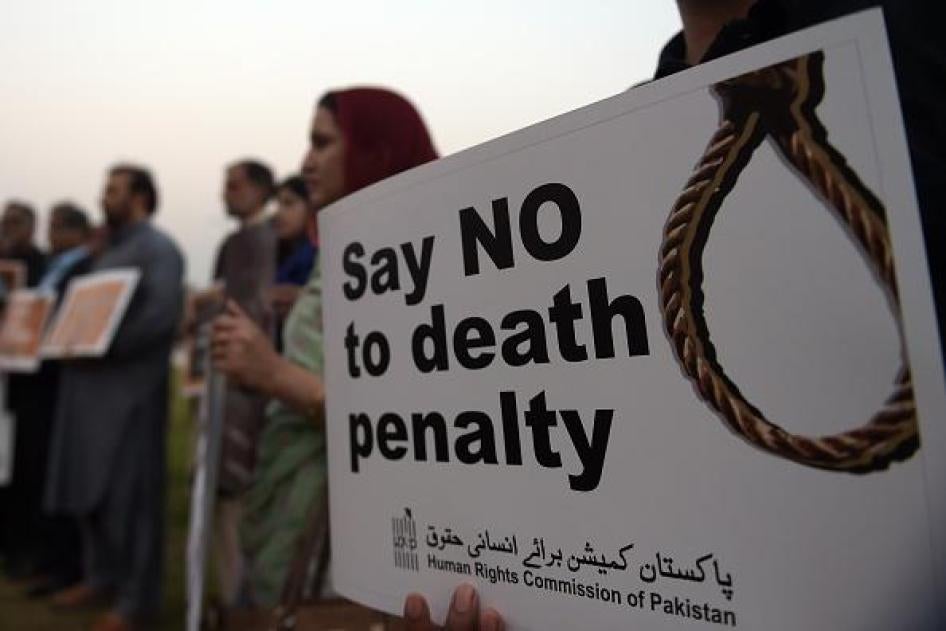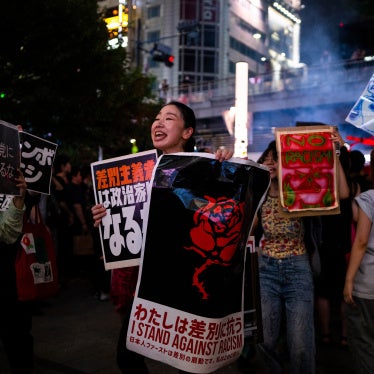Pakistan’s government is working hard to dissuade Indonesia from executing Zulfikar Ali, a Pakistani citizen on death row since 2005 for drug smuggling. Pakistan says Ali’s “trial was not fair.” The Indonesian government has yet to respond to the request to spare Ali from its latest looming death penalty spree. Those executions are part of President Joko Widodo’s signature policy of executing convicted drug traffickers as a form of judicial “shock therapy” against a perceived domestic drug emergency.
|
Dispatches
Dispatches: Pakistan’s Death Penalty Hypocrisy
Government Seeks Death Row Mercy From Indonesia
Most Viewed
-
March 29, 2021
“Everything I Have to Do is Tied to a Man”

-
November 25, 2019
A Dirty Investment

-
September 20, 2017
Iraq/KRG: 1,400 Women, Children From ISIS Areas Detained

-
January 14, 2026
Sri Lanka: UN Finds Systemic Sexual Violence During Civil War

-
April 27, 2021
A Threshold Crossed





